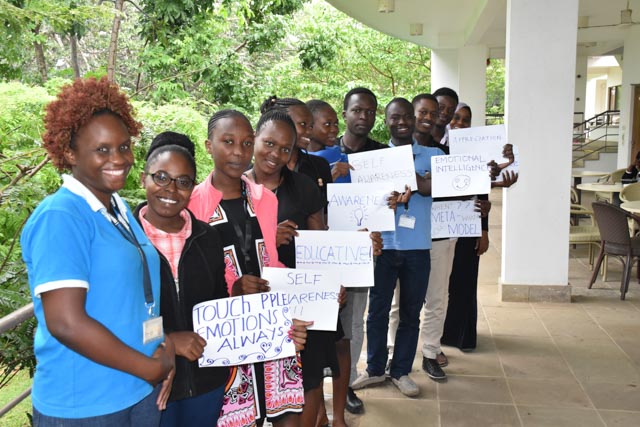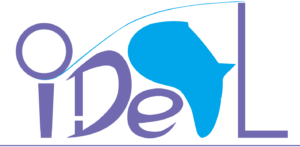News
The 10th Cohort of School Leavers Completes their Attachment
June 21, 2019
The 10th cohort of the KEMRI School Leavers Attachment Scheme (SLAS) recently completed their annual attachment. The students joined the scheme on 13th March 2019 and left on 31st May 2019. During the attachment, the students went around the 5 KEMRI-Wellcome Trust Departments on fortnightly rotations.
This year, the scheme was advertised through various online and offline platforms attracting a total of over 90 applicants. More than 90 eligible students were invited for an open day, after which 28 were invited for face-to-face interviews. Nine students went through the competitive process successfully. So far 80 students have gone through the scheme successfully.
The KEMRI School Leavers Attachment Scheme is a program aimed at giving Kilifi’s very talented students a taste of research whilst attracting more young people to research with an aim of generating a critical mass of African research leaders. During their three month attachment the students rotate in the following departments: –
- Epidemiology and Demographic Department (EDD)
- Information and Communication Technology (ICT)
- Hospital Wards
- Laboratories
- Community Liaison Group (CLG)
SLAS 2019 EXPERIENCES
Community Liaison Group

Students were exposed to field workers training, meetings with KEMRI community representatives, community engagement and school visit activities in the Schools Engagement Program (SEP).
Epidemiology and Demographic Department (EDD)
Students described it as an educative and empowering experience in the department. They were engaged in Census activities, learned about the importance of data collected, the regulatory processes before a study begins and the committees involved, and how diseases spread.
Laboratories

The students went through the Clinical trials, immunology and microbiology laboratories. They were engaged in receiving samples, media preparation bacteria and malaria parasite culture processes, quality control, RNA extraction, sample processing, and other activities. Some enjoyed using the microscopes to view white and red blood cells, DNA extraction and blood grouping. One of the students said that he learned the importance of documentation while in the laboratories.
Information and Communication Technology (ICT)

Students participated in various activities including learning programing language, coding, project management, and software installation. They learned the different functions of the IT helpdesk team, ticketing system, use of Skype for business, the different networks and many others. Using programming language, they did 3 projects, a video trailer, a calculator and a number game. They prepared PowerPoint presentations and presented them to the team as well.
Hospital Wards and Pharmacy

During the wards rotation, the students visited the High Dependency Unit (HDU), the hospital wards and the pharmacy. They attended the handing over/taking over clinical meetings, went for hospital ward rounds, observed the clinical processes, took anthropometric measurements and learned about uses of various equipment. In the pharmacy, they learned about drugs, how to read the prescription, routes of drug administration and how vaccines are stored. They were involved in drug compounding, dispensing and checking drug balances. One of the students aspiring to do pharmacy appreciated this experience because he was looking forward to this course, and hence inspiring for him to meet people in the same career path.

In their final week, the students did both a written evaluation and developed a participatory video after undertaking a media production training. Through this, they documented their experiences through and did a final PowerPoint presentation about the scheme to the entire Programme staff, in the presence of their, guardians, family and friends.
Categories
Recent News
- Making HIV prevention services accessible to the most at-risk – Dr Kimani Makobu October 21, 2021
- Reflections and triumphs of a former IDeAL student August 9, 2021
- Malaria control reduces iron deficiency February 24, 2021
- There is no health without mental health February 11, 2021
- Understanding the patterns of spread of influenza viruses – Insights from Dr David Collins October 21, 2020
- 51
- 66
- 48
- 104
- 44
- 423


Share: